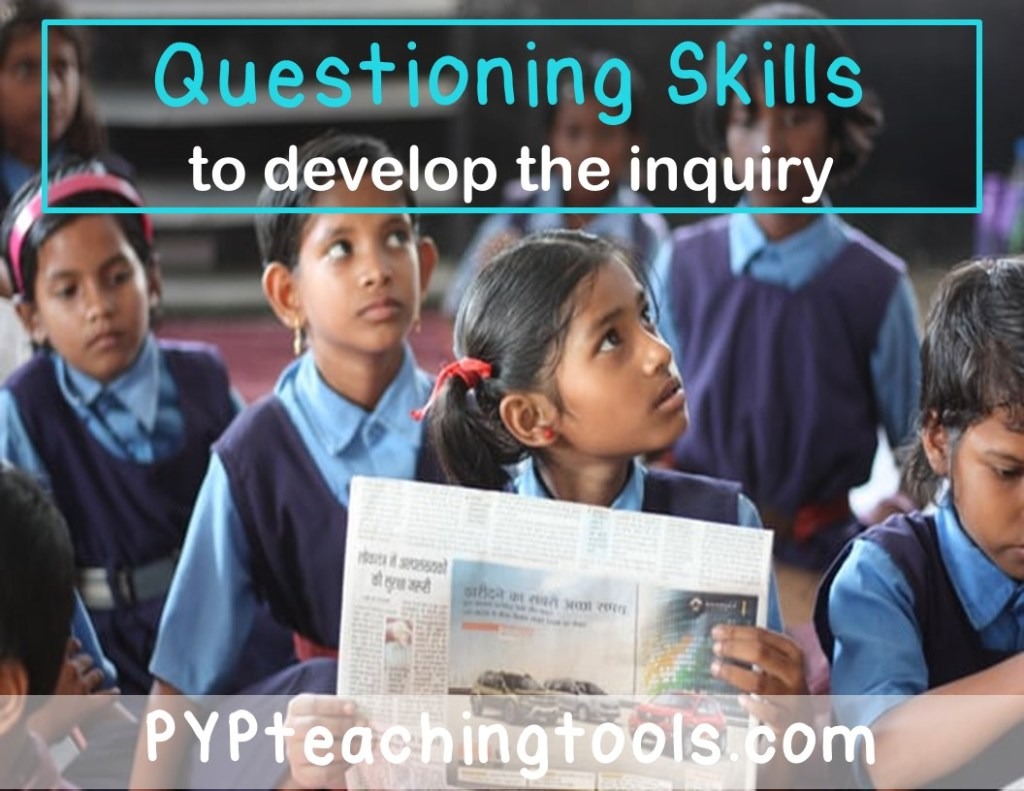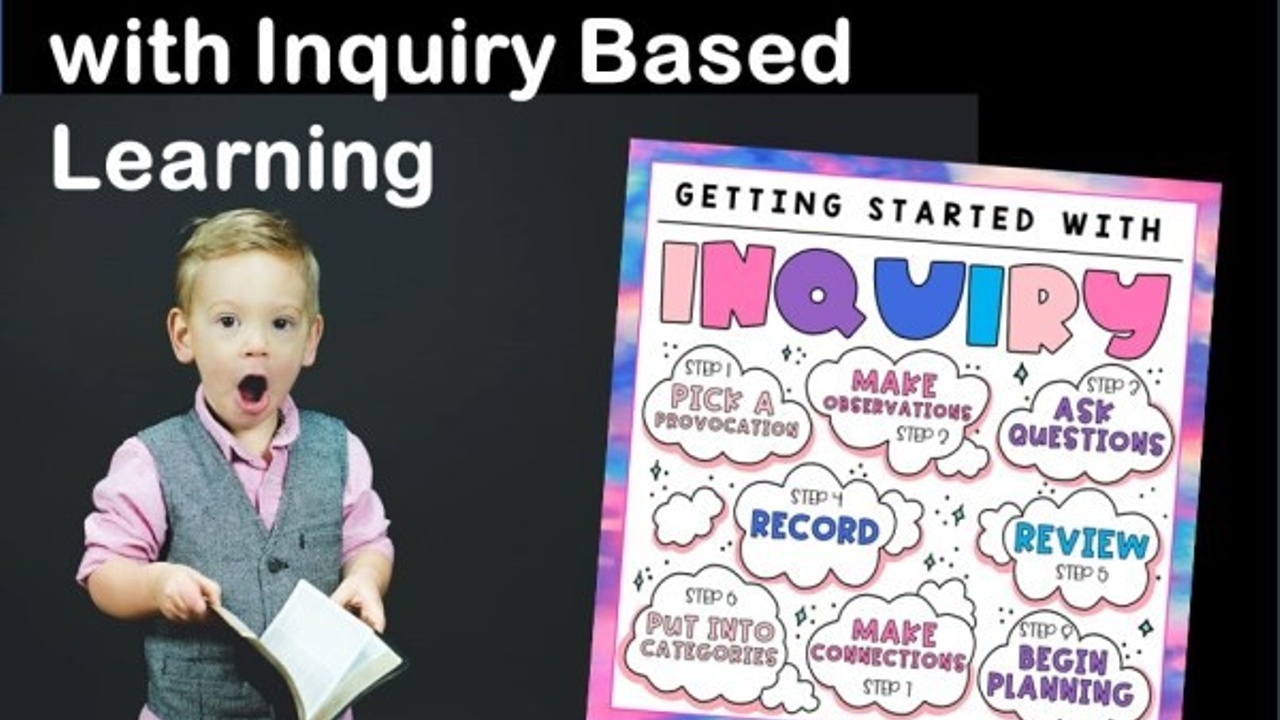Welcome to PYPteachingtools.com
Provoking Curiosity, Inviting Wonder: The Art of the Provocation in the IB PYP

No matter whether your inquiry is happening online or in the classroom, setting the scene of the inquiry and tuning in to the possibilities requires sparking curiosity, triggering background knowledge and provoking wonder. This is where the magic begins and the student-led inquiries stem. This is the art of the provocation. But what exactly does it mean? What is this thing we call "a provocation"? These synonyms from the definition of the noun (provocation) from the Oxford English Dictionary are indicators of what we are aiming for:
We want the provocation activity to be familiar yet unfamiliar.
- Prod the children's...
Questioning Skills and the IB PYP Inquiry

If we are inquiry teachers, facilitating a student-led inquiry process, then it makes absolute sense that we have to be able to teach the children the art of questioning. Questions are, after all, the beginning of each and every inquiry. Questioning plays an important role in building a true student-led inquiry, beginning with the initial provocation. So, where do we start? Well, allow me to share my experience with you and, hopefully, bring you some practical strategies to take back to your own class of inquirers. If you missed the first part of this discussion about developing the Approaches to Learning Thinking Skills, click here to catch up with how I begin to develop those sub-skills. In this article, I have provided a free video that also offers practical suggestions. But, let’s start by doing.
Using simple thinking routines with the children, as the one below, I would work up to each of those skills: observing,...
Steps to Getting Started with the IB PYP Inquiry

Are you new or newish to inquiry-based teaching? Or, are you confused about the process behind facilitating an inquiry? Within the IB PYP, we are presented with multiple inquiry strategies and processes that begin with the IB PYP planner. It isn’t surprising that many of us are confused in the beginning and sometimes even lost. I want you to know several things right now:
- There is more than one RIGHT way to bring inquiry into your classroom.
- Regardless of the myriad of processes, they all come down to the same steps.
- Inquiry isn’t linear. It will get messy. (We will chat more about that later.)
- You are NOT alone! We have an incredible community of international teachers who have been in your shoes and are willing to help and support. I’d love to have you join us. Head over to Instagram and say, “Hi!”.
If you’re still wondering what all the fuss is with inquiry-based teaching, this article gives you 10 reasons why you...
2nd FREE Video-Inquiry Teacher Training! Developing Conceptual Thinkers

Welcome back! And if you’re just showing up….welcome! I have had an overwhelming response to video number 1! I’m beyond grateful for everyone who commented, sent me private messages and all in all, expressed thanks. I feel incredibly thankful to be a part of such a fabulously supportive, global community of teachers.
Video number 2 is here! Following on from training video number 1, where I introduce the idea of using concepts within teaching and learning, I’ll now go on to give you some practical ideas for developing conceptual thinkers.
These videos are a snapshot of my new online professional development course, Essentials for Inquiry: Getting Started with Inquiry-Based Teaching, which I shall be releasing SOON! I receive so very many questions from teachers all around the world and this course is designed to get you off to an effective start from planning, through the inquiry process, to assessment. It comes complete with lesson...
The Art of the Provocation in the IB PYP

The art of the provocation. Such a vital part of the inquiry classroom. This is the number one request for help and guidance that I receive from teachers, “How and what can I do to provoke this inquiry? ” If this sounds familiar, believe me when I tell you that you are not alone! But don’t worry. I have a few things up my sleeve that can help. In this article, I am sharing suggestions for planning a provocation as well as a guide to Six Simple Provocation activities that you can link to in my Instagram account. Also, read through to the end and you’ll be able to grab a FREE provocation template tool. Easy to use with ANY inquiry, simply edit to suit your needs. It’s available in digital and printable versions, so whatever your situation or preference, I’ve got you covered.
No matter whether you’re teaching online or in the classroom, setting the scene of the inquiry and tuning in to the...
Online Teaching with the IB PYP- A Starting Point

I am going to begin with applauding each and everyone of you, my dear colleagues, wherever you may be in the world, as we endure this CORVID 19 pandemic and work together to keep educating our young learners and making their lives as normal as possible given the incredible abnormality of the entire situation. I’m hoping, by sharing a few of my own trials and successes, that I can lessen some of the concerns you my have and help you to recognise that we are all feeling the same feelings. Teachers, children and parents alike.
We were thrown into this online learning situation with only 12 hours notice. Italy announced on a Sunday evening that schools would be closed the next day, for one week. Three weeks later, we re still working through it and growing from it! Stay positive, stay strong and focus on the silver lining of this cloud.
We have since learned that our children are incredibly positive, incredibly independent and incredibly willing. Their beautifully innocent...

